Inside the deadly power vacuum that weakened Rebels empire
THE Rebels may well have grown into the biggest outlaw bikie gang in the country. But with leaders either dead or deported, the club is struggling to recover from a power vacuum — and internal power struggles have weakened their criminal empire.
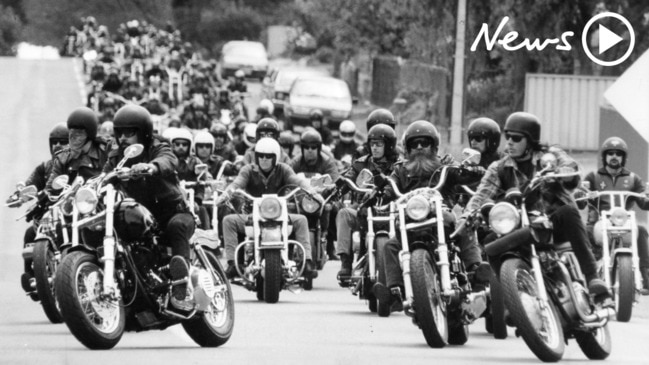
A BOOZY pub brawl temporarily delayed the formation of one of Australia’s biggest organised crime gangs.
A group of mates who had been “riding and building bikes together” met at a Brisbane hotel in 1969 to start a club called the Confederates.
But when the blue erupted in the pub their meeting was scuppered.
They met again months later and this time decided to call their club the Rebels and settled on the club colours inspired by the Confederate flag.
From those humble beginnings the Rebels grew into the biggest outlaw motorcycle club in the country, with around 1100 members and 900 associates across some 70 chapters.
INSIDE THE HELLS ANGELS AUSTRALIAN CHAPTER
THE BLOODY AND BRUTAL HISTORY OF THE BANDIDOS

But the club has recently hit troubled waters with its former leader, Alex Vella in exile, and the death of Simon Rasic, their national sergeant-at-arms, who died of natural causes in 2014. This left a power vacuum the club is struggling to recover from.
Members who had been thinking of leaving the club — typically a costly and dangerous move — took advantage of the instability and jumped while no one was looking, according to police.
The Rebels’ main business interests include construction, transport, tattoo parlours.
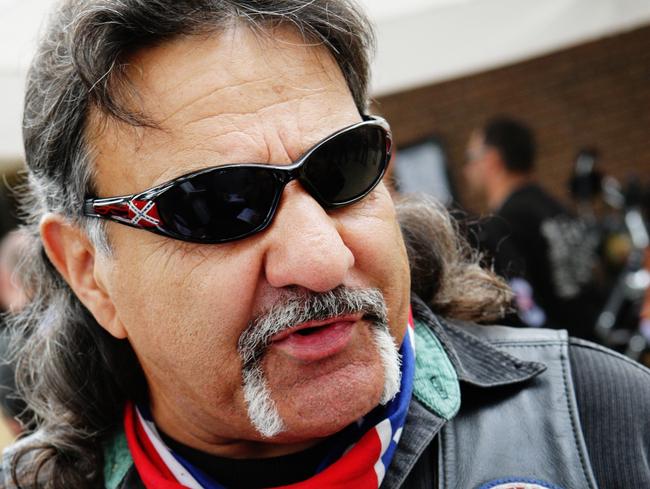
Deportation woes
The Rebels have been hit hard by Immigration Minister Peter Dutton’s bid to smash the power of outlaw bikies.
Dutton has been cancelling the visas of bikies on character grounds based on secret information from police and intelligence services.
If the bikie is overseas, his visa will be cancelled and he will be blocked from returning to Australia. If he is on Australian soil, he will be taken into custody and deported.
This process cost the Rebels’ long-serving leader, Maltese-born Alex Vella, who was stripped of his visa while holidaying in Malta in 2014.
Vella told News Corp in 2017 he spent his days raising pet budgerigars in the dilapidated apartment he called home.
Authorities say that move triggered leadership and internal power struggles in the club which weakened their criminal empire and caused members to “patch-out’’, or join rival clubs.
The man earmarked to take over from Vella, Rebels Sergeant-at-Arms Simon Rasic, died shortly after Vella was exiled, exacerbating the instability caused by Vella’s exile.
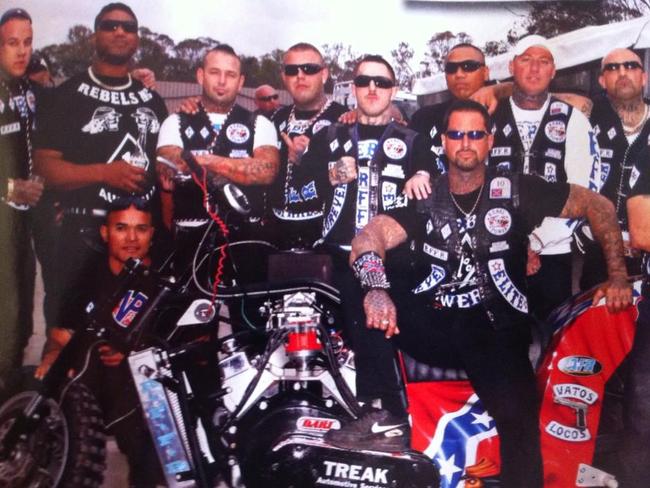

Other Rebels targeted by Dutton include, Aaron “AJ” Graham, who was deported to his native New Zealand.
Graham, the founding member of the Rebels bikie gang’s Tasmanian chapter, was escorted onto an Air New Zealand flight in Sydney and flown to Auckland.
Shane Martin, the father of Brownlow medallist Dustin Martin, was also deported to New Zealand in 2016, for his ties to the Rebels.
Vella and Shane Martin have previously denied being involved in criminal activity.
Vella’s exile
From a plush home in western Sydney and a fleet of luxury cars, to a cramped Maltese apartment with a cage full of squawking budgies.
Alex Vella’s life is literally and metaphorically half a world away from his days at the head of the Rebels.
When News Corp visited Vella, the “Maltese Falcon” said he no longer wore club colours because “they are more trouble than they’re worth” and that he spent his days writing poetry and raising his pet budgerigars.
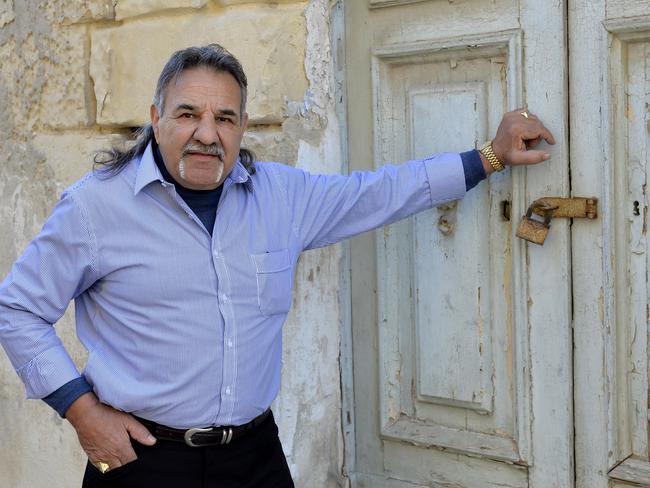
The dilapidated apartment block Vella called home was tucked away on a side-street filled with buildings that were crumbling with age and stray cats out the front searching for food.
Vella denies being involved in organised crime.
Police data tells a different story of the club he once ran.
During 2011 and 2012, while Vella was in charge, more than 700 Rebels gang members were investigated in relation to 1200 charges.
Vella’s exile will continue after his attempt to appeal to the Australian High Court was thwarted.
Rebels v Comanchero
When Comanchero boss Mick Murray was attacked in Darwin in 2015, it kicked off a tit-for-tat war between two of Australia’s biggest bikie clubs.
Murray was on holiday in Darwin when he was involved in a brawl at a strip club with local Rebels members.
The Comanchero allegedly responded by sending an interstate team, which used baseball bats to batter the Rebels’ Darwin president Jax Smith in retaliation.
Just months after the Darwin incident, two tattoo parlours owned by Rebels members in Melbourne’s outer-east were firebombed.
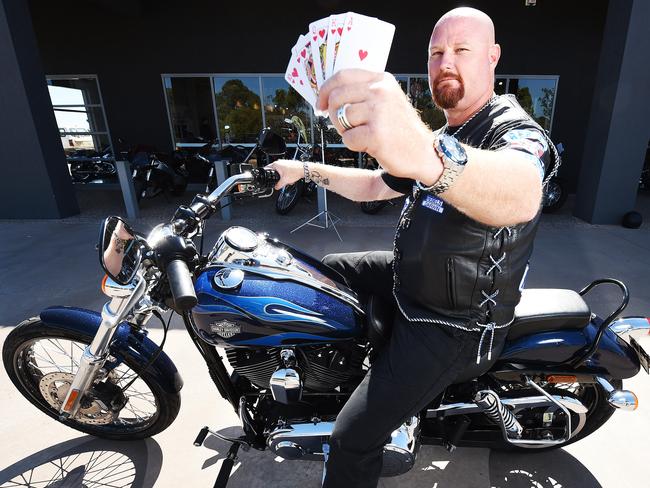
Molotov cocktails were thrown through the front windows of the buildings in Lilydale and Seville, leaving a $250,000 damage bill.
In late 2016, rival gang members brawled in a Dandenong pub, prompting a swift police response.
Properties in Beaconsfield, Dandenong, Endeavour Hills and Lyndhurst were raided but it didn’t halt the carnage.
Just eight days after the pub brawl, a fire broke out at the Rebels’ Dandenong clubhouse.
Gas cylinders exploded during the blaze which gutted the building and left its roof partially collapsed.
Assaults, more firebombings and drive-by shootings have also been linked to the rolling conflict and peace talks attempted to be brokered by Victoria Police were refused.
Tensions have since simmered between the Comanchero and Rebels however, mainly because a series of raids last year on Murray and his crew resulted in significant charges and remands.
Bikie code broken
Was it because he’d been planning to leave the club, a claim that he was a police informant or cheating with a fellow gang member’s partner (a cardinal sin in the bikie code)?
Rick Reynolds was strapped to a chair with cable ties as fellow gang members worked him over.
The Rebels Sergeant-At-Arms had been ambushed outside a smash repair workshop in Sydney’s west in 2013, then dragged inside where the brutality played out.
Blood poured from Reynolds (his real name is suppressed) and he drifted in and out of consciousness as the beating unfolded.
When police burst into the factory — tipped off by passers-by who witnessed the ambush — they found a pickaxe, shovel, pliers, cricket bat and a gas burner for scorching off club tattoos.
The attack served as a reminder of the grave consequences for breaking the bikie code.
Eight Rebels were sentenced to a minimum of between two and three years in prison before being eligible for parole over the attack.
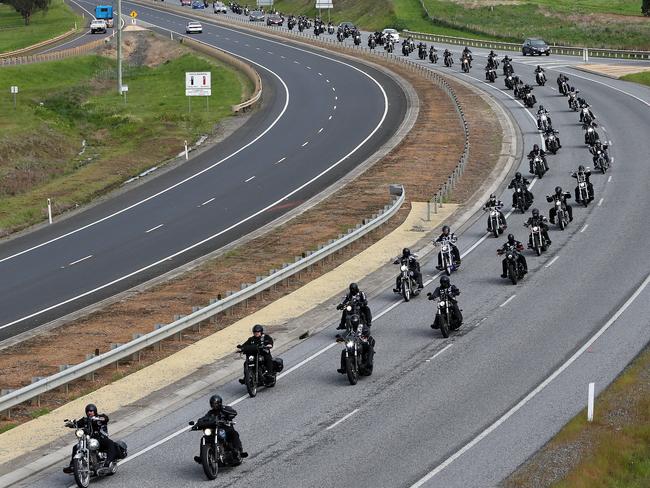
Power handover in Victoria
Dean Martin, the president of the Victorian Rebels, handed over leadership of the gang in a “peaceful” changeover on April 14.
Martin, the brother of exiled former Rebel bikie Shane Martin and uncle to star Richmond footballer Dustin, has been a long-term Rebels leader and is understood to have remained within their ranks.
The handing over of the president’s badge occurred at a Whittlesea clubhouse followed by a party.
The Herald Sun understands the top spot at the Rebels has been taken up by the cousin of Norm Meyer — a prominent Comanchero and union figure.
HOW COMANCHERO BECAME THE MOST VICIOUS BIKIE GANG
THE KEY PLAYERS OF THE REBELS BIKIES GANG
Originally published as Inside the deadly power vacuum that weakened Rebels empire


